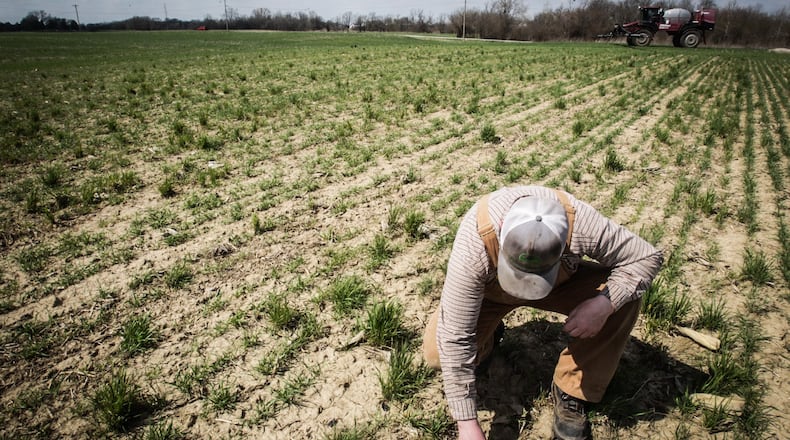The effects the Dayton region might feel over 5,000 miles away from Kyiv are difficult to predict and depend on how the war plays out. Already, energy prices are going up. And local economic and international studies experts, as well as business leaders, conjectured that this war could exacerbate inflation, further disrupt the supply chain, spook investors and create a volatile market for farmers.
As long as the conflict wraps up quickly and remains confined to Ukraine, the ramifications for the Dayton region’s economy should be minimal and short-lived, said Willardsen. He said average residents will likely notice the effect to their pocketbooks most when it comes to energy costs — at the gas pump and heating their homes — and a dip in the value of their retirement plans or other investments.
The former is because Russia is one of the world’s, particularly Europe’s, largest suppliers of crude oil and natural gas. Some of that supply will be cut off by this conflict, raising demand and prices for both natural gas and gasoline, Willardsen said. The latter is because the war creates uncertainty, which means investors hold off on spending and stocks drop, he said.
Glen Duerr, an international studies professor at Cedarville University, isn’t certain that the fighting will cease soon. Even if Russia takes Ukraine like it’s expected to, civil unrest or guerilla insurgents, as well as sanctions, could continue to disrupt the economy for a long time, he said.
“It’s very speculative. We don’t know how long this will last, what kind of an impact it’ll have,” Duerr said. “Oftentimes in conflicts, a lot of people opt to save rather than spend … These things are very difficult to predict because it depends on human behavior and how people react to this.”
The Ohio industry perhaps most affected by this conflict will be agriculture, Ohio Chamber of Commerce President Steve Stivers said.
Tadd Nicholson, executive director of the Ohio Corn and Wheat Grower Association, said the Russian invasion of Ukraine (the bread basket of Europe) could greatly impact wheat and other commodity crop farmers. Russia and Ukraine produce about one-quarter of the global wheat supply, as well as important things farmers need like energy and fertilizer. Since these supplies will likely be disrupted by the war, over the last few days, grain prices have quickly gone up (possibly a boon for Ohio farmers) at the same time that the cost of energy and inputs like fertilizer climbed (a downside).
“So it’s a lot of question marks about what the end result would be,” he said.
Stephanie Keinath, vice president of strategic initiatives at the Dayton Area Chamber of Commerce, said member business leaders are in a state of disbelief and have a lot of uncertainty about the long-term impacts of the conflict.
“The biggest concern in the short term is the impact on the global energy market, but in the longer term impact of some of those sanctions is yet to be determined,” she said. “Volatility in the market is really causing people just to pause to see how things may progress.”
Keinath and Stivers said there are some local businesses that deal directly in or with Ukraine or Russia, but they are far from the majority. Stivers said Ohio businesses are more likely to have parts of their supply chain in eastern European countries like Poland or Serbia and see that disrupted as refugees pour in.
“It’s really about gas prices. It’s concern one and two, and supply chain disruption is No. 3,” Stivers said. “And the fourth is just general economic uncertainty, things like stock prices, 401k prices, those are the impacts Ohio consumers will feel.”
About the Author

